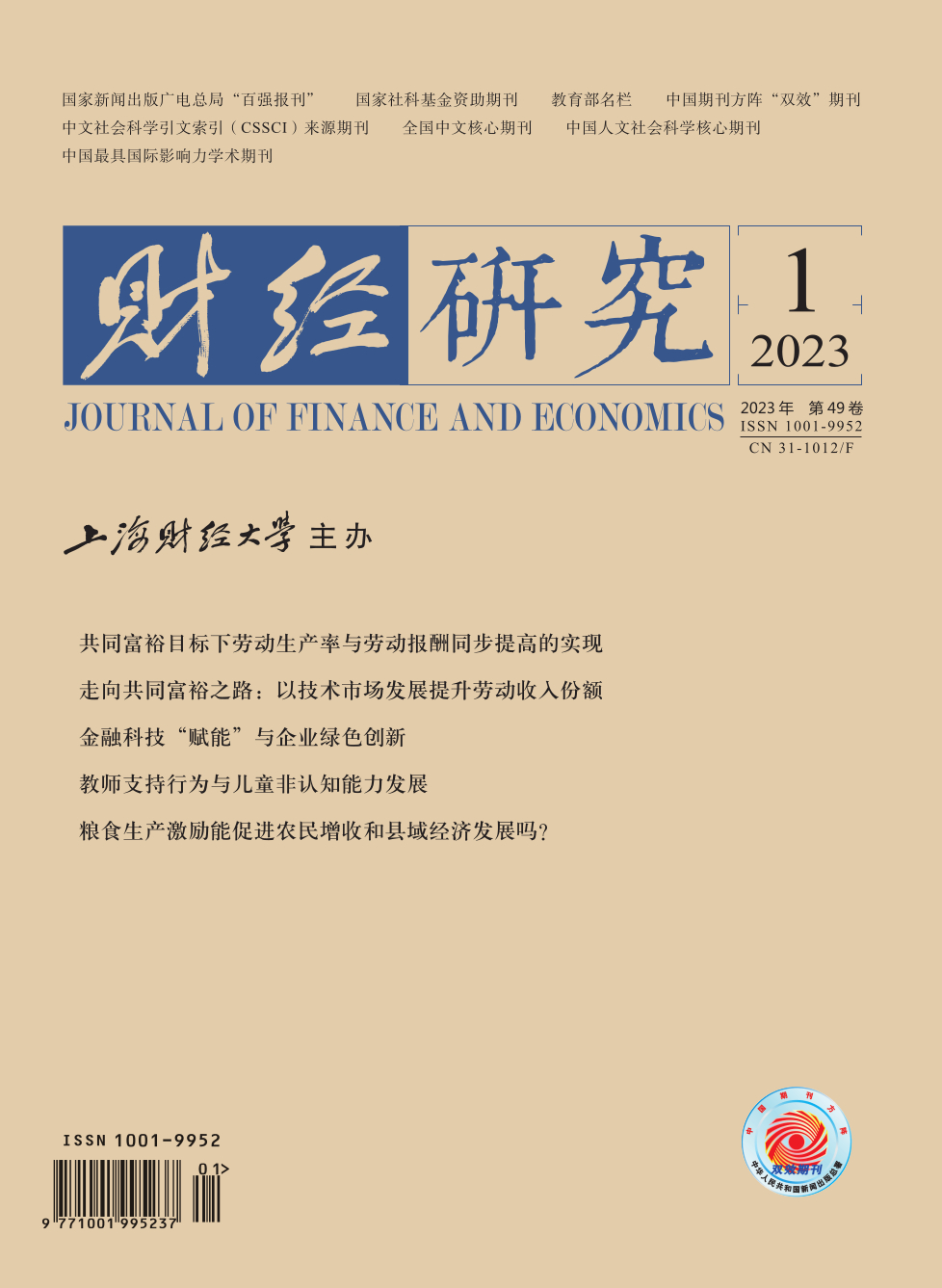With China’s economy turning to high-quality development, how to optimize the income distribution structure and reduce the income gap has attracted more and more attention. Technology markets are playing an increasingly important role in economic development, and their sustained development not only actively promotes regional innovation and economic growth, but may also have an impact on factor income distribution. It is of great theoretical value and practical significance to investigate the relationship between technology market development and factor income distribution scientifically.
This paper uses the provincial-city level data from 2001 to 2014 to investigate the impact of technology market development on labor income share. The results show that: First, with the development of technology markets, labor income share is increasing significantly. Quantitatively, when the technology market development index increases by one percentage point, labor income share will increase by 0.009−0.012 percentage point, and this effect is particularly significant in the subsamples before 2008 and in central and western regions. Second, optimization of industrial structure, labor bias of technological progress, and reduction of factor price distortion are the main mechanisms. Third, the positive impact increases with the improvement of the degree of intellectual property protection, and decreases with the improvement of product marketization and openness.
The conclusions have direct policy implications: First, when formulating technology market-oriented reform and related policies, it is necessary to fully recognize the economic effect of promoting the development of technology markets, which will not only improve regional innovation and economic growth, but also affect factor income distribution. Second, policymakers could reduce the income gap between regions by improving the technology markets in central and western regions, strengthening the linkage of factor markets such as capital, labor and technology, and promoting the flow of factors between regions. Third, when promoting the market-oriented reform of technology, all regions should focus on coordinating the relationship between technology market development and institutional environment, and improving the construction of supporting systems.
This paper mainly extends the existing literature in two aspects: First, it uses the provincial-city merged data to investigate the income distribution effect of technology market development, which provides a new perspective for the scientific evaluation of the development of new factor markets such as technology, and expands the literature on changes of China’s labor income share. Second, it reveals the internal logic of the impact of technology market development on labor income share from industrial structure optimization, technological progress bias, and factor price distortion, and discusses the moderating effect of regional institutional environment such as intellectual property protection, product marketization, and openness.





 6203
6203  6545
6545

